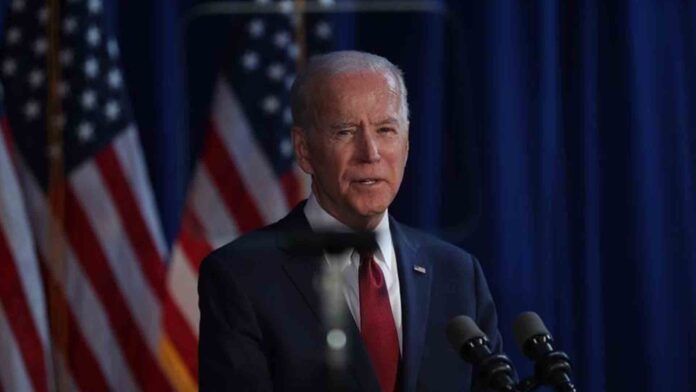US President Joe Biden on Tuesday signed a memorandum condemning the surge of anti-Asian racism in the country during the Covid-19 pandemic, while directing the Department of Justice to make more concerted efforts to address hate crimes and harassment against Asian Americans and Pacific Islanders.
“During the coronavirus disease 2019 (Covid-19) pandemic, inflammatory and xenophobic rhetoric has put Asian American and Pacific Islander (AAPI) persons, families, communities, and businesses at risk,” the memorandum said.
The memorandum is part of a series of executive orders regarding racial equity and civil rights signed by Biden.
“The Federal Government must recognize that it has played a role in furthering these xenophobic sentiments through the actions of political leaders, including references to the Covid-19 pandemic by the geographic location of its origin,” it said, “Such statements have stoked unfounded fears and perpetuated stigma about Asian Americans and Pacific Islanders and have contributed to increasing rates of bullying, harassment, and hate crimes against AAPI persons.”
According to the document, the pandemic response from federal health authorities should demonstrate “cultural competency, language access, and sensitivity towards AAPIs.”
In addition, the memorandum orders federal agencies to look into whether discriminatory rhetoric like “China Virus” is referred to in any existing policies or federal websites published by the previous administration.
It also issued guidance for the Department of Justice on how to further prevent hate crimes and harassment against these racial groups, including better data collection of anti-Asian hate incidents with the assistance of AAPI communities.
“It’s time to act now, not only because it’s the right thing to do, but because if we do, we’ll all be better off for it,” Biden said at a signing ceremony at the White House.
Biden also signed executive orders directing the Department of Housing and Urban Development to address racially discriminatory federal housing policies and the Department of Justice to end its use of private prisons.
“I think these are very promising… And I think it’s just the beginning. There’s a lot more work that needs to be done,” Manju Kulkarni, the executive director of Asian Pacific Policy and Planning Council (A3PCON), said of the memorandum.
Throughout last year, then US President Donald Trump repeatedly referred to the coronavirus as the “Chinese virus” despite guidance from public health officials to avoid attaching locations or ethnicity to a disease.
A study published in the journal Health Education & Behavior suggests that such racist rhetoric has had a profound impact on how those in the United States see Asian Americans, noting the language led to an increased subconscious belief that Asian Americans are “perpetual foreigners.”
“Research suggests that when people see Asian Americans as being more ‘foreign,’ they are more likely to express hostility toward them and engage in acts of violence and discrimination,” said Rucker Johnson, a public policy professor at the University of California, Berkeley, and co-author of the study.
“Words matter. People are making that close association between the virus and Chinese people because he insisted on using that term,” said Russell Jeung, chairman of the Asian American studies department at San Francisco State University.
Stop AAPI Hate, an online reporting center, recorded 2,583 anti-Asian incidents across the country between March and August last year. Victims said they were spat on, stabbed while shopping, shunned for wearing masks and barred from entering ride-hailing vehicles.
An estimated 2 million Asian Americans and Pacific Islanders have served on the front lines of combating the pandemic as health care providers, first responders, and other essential roles, according to a Huffington Post report. (PNA)






